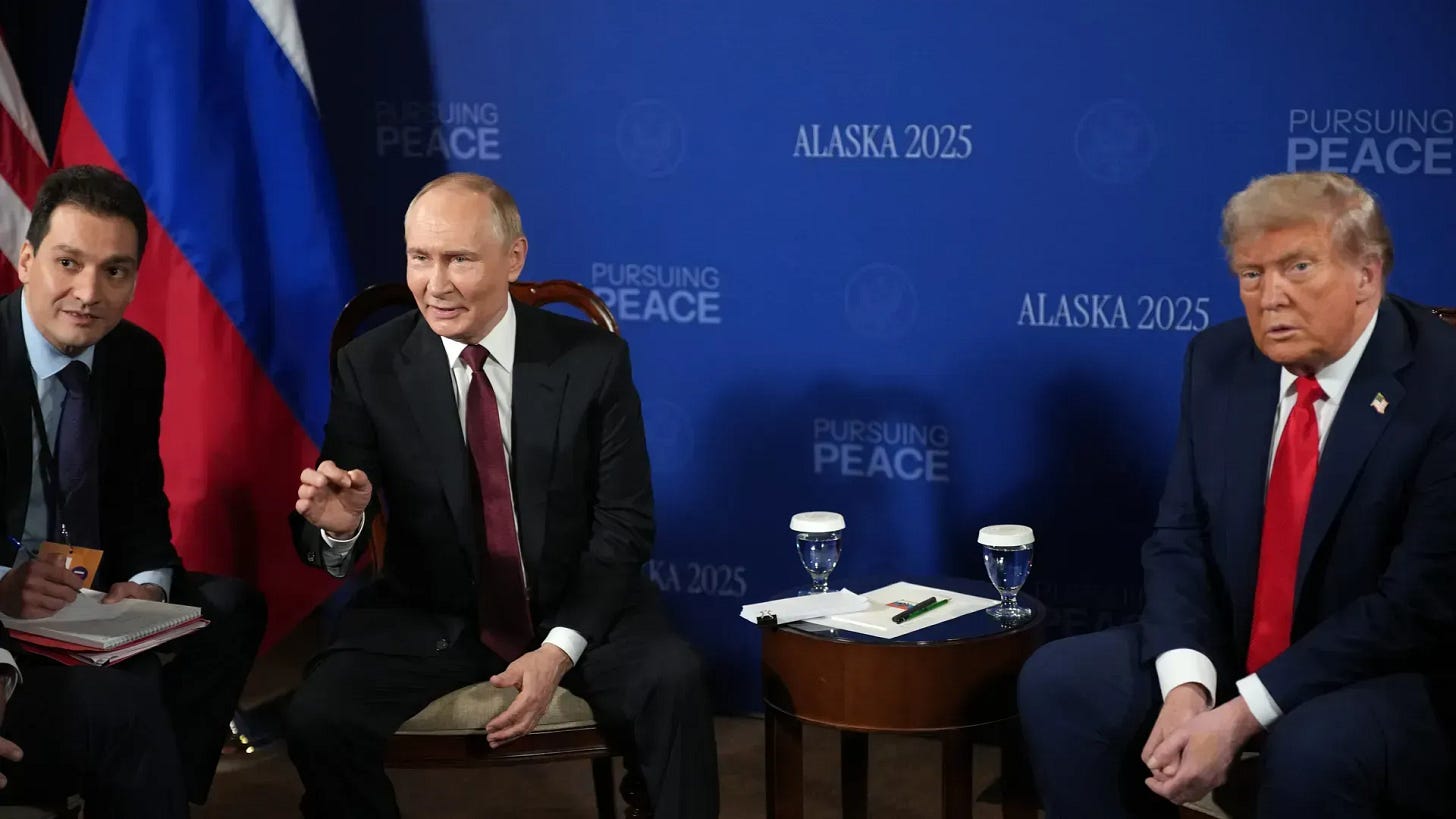After Alaska: Putin Sets the Terms, Kyiv Braces
After Alaska, Trump drops his ceasefire demand and echoes Putin's "deal first" line; no new US sanctions. White House talks today weigh a Donetsk-for-freeze framework and security guarantees—stakes for Ukraine and Europe are high.
What happened?
Following the Alaska summit, Trump dropped his pre-meeting demand for a ceasefire and said Ukraine "has gotta make a deal." This shift aligns with Putin's preferred approach of moving straight to a peace agreement. No new US sanctions were announced after the talks. Meanwhile, Russia probed Ukrainian lines near Dobropillia, but Kyiv says the front has since stabilized.
Why does this matter?
US posture shift: Trump adopted Putin's preference for a peace deal without a prior ceasefire. This reduces Kyiv's leverage.
Battlefield asymmetry: In the absence of new US sanctions after the summit, Moscow can maintain pressure on the battlefield and buy time while negotiations continue. The Russian advance near Dobropillia (≈10km) continues to pose additional risks for Ukraine, even if it is partially contained.
Domestic strain in Kyiv: Ukrainian politicians and civil society reject the idea of trading territory, citing their obligations to citizens in occupied cities. Zelensky reiterates that the constitution prohibits ceding land. European allies fear a settlement that cements Russian gains and will join Zelensky in Washington to ensure that Ukraine remains central to any deal.
What's next?
Later today, Trump will host Zelensky and European leaders at the White House to determine if there is a path forward for a framework reportedly involving conceding control of all of Donetsk to Russia in exchange for freezing other lines. Intense negotiations regarding security guarantees for Ukraine and the reinstatement of sanctions if talks stall are expected.
finformant view
Putin is ahead on points: he avoided new sanctions, convinced the US to accept his approach, and maintained battlefield momentum as leverage. Kyiv faces stark domestic constraints—constitutional red lines and public resolve—while negotiating under fire. Much depends on today's meeting, but the war will almost certainly continue.



